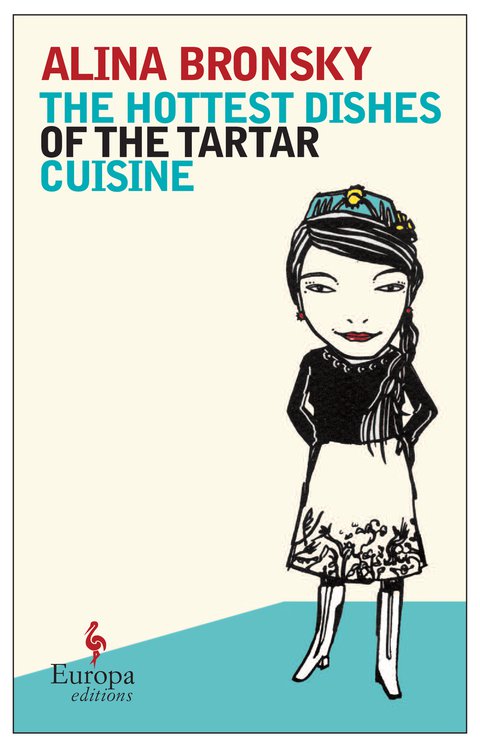
The characters in this story represent the survival instinct run amok, married to some innately female skill for protecting the loved ones.

It strikes me as uniquely Slavic, Eastern European in its sly distance. This is not irony, or sarcasm or any immediately recognizable form of humor. When a petty bureaucrat needs flattering, Rosa is your man. When someone is sick, she’s the one who feeds them and wills them back to health. Rosa is a monster, but she is also the only one in her family with any imagination or initiative. When you aren’t horrified that Rosa is practically selling her beloved granddaughter to a German pedophile who professes a fascination for Tartar cuisine so that grandmother, mother and daughter can move to Germany, or destroying her daughter’s marriage, or sleeping with men who give her money and gifts, you are laughing at her exaggerated mother-ness. And that you smiled with particular affection at someone you hated.” Rosa relies on her Tartar ancestry, the few recipes she knows, when she needs them to charm a man: kvass soup, horse meat sausage, kystbyi, vorschmack, tzimmes, and kullama and sour pickles from her relatives in the Urals.īronsky’s other great gift is humor. That you shouldn’t show it when you loved someone. That nobody should be able to tell when you were uncertain.

“I had tried to teach her,” Rosa says of her maternal style, “that nobody should be able to see when you were scared. Just when you begin to tire of their cruelty, indifference and narcissism, Bronsky feeds you a little tidbit from their past (Rosa was orphaned in World War II) or exposes their vulnerability. To the rest of the world, Aminat is a terror, a spoiled brat, a snotty-nosed urchin.īronsky’s plots consist of a series of obstacles - everyday living is a test of her characters’ survival skills. The baby, Aminat, is the love of Rosa’s life, the beautiful daughter she never had, her way out of Russia, her hope for the future. No one measures up in Rosa’s estimation, until Sulfia’s extra large stomach turns out to be an unwanted, unexpected pregnancy. And you can’t stop laughing when her transparent schemes for her family’s survival backfire. “I only hoped that her simplemindedness,” she says of her daughter, “might prove attractive enough to some man that he wouldn’t notice her awful legs until the two of them were already standing in front of a justice of the peace.” It’s possible you’ve never met anyone as self-centered and manipulative as Rosa. Rosa is not above using her considerable charms (she’s quite proud of her good looks) to get what she needs for her family, but she cannot believe how pathetic, passive and helpless they are. Poor Sulfia, 17, lives with Rosa and her father, Kalganow, in a communal apartment somewhere in Russia. Meet Rosa, Tartar matriarch and Mommy Dearest.


 0 kommentar(er)
0 kommentar(er)
